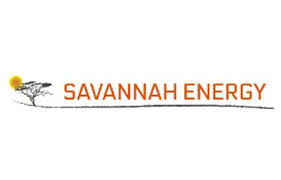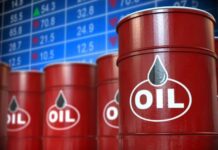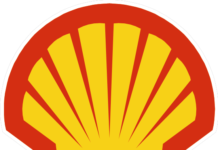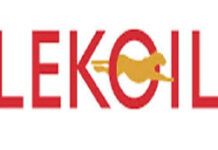Savannah Energy PLC, the British independent energy company focused around the delivery of Projects that Matter in Africa, is pleased to announce its 2021 Annual Report and Audited Accounts (“Annual report”).
The Full Year total revenues increased to US$230.5m which was +7% higher than FY 2020 total revenues of US$215.9m. This is ahead of the Company’s previously issued FY 2021 guidance of ’Total Revenues of greater than US$205m’.
Average realized gas price of US$4.19/Mscf was +6% higher than the average realized gas price of US$3.96/Mscf in 2020. Similarly, average realized liquids price in 2021 was US$69.9/bbl, a +51% increase compared to the 2020 average realized liquids price of US$46.2/bbl.
Total cash collections from the Company’ Nigerian assets increased from US$167.4m recorded in FY 2020 to US$208.2m. This represents an increase of +24%.
The Group cash balances of US$154.3m as at 31 December 2021 was higher than the Group cash balances of US$106.0m recorded in FY 2020. This is an increase of +46%.
Other highlights include: Adjusted EBITDA of US$175.0m (+7% on FY 2020 Adjusted EBITDA of US$163.2m2);Adjusted EBITDA margin remained broadly unchanged at 76%;,Group operating expenses plus administrative expenses[3] of US$49.9m (FY 2021 initial guidance of US$55-65m);Group Depreciation, Depletion and Amortization of US$36.2m (FY 2021 initial guidance of US$38.3m based on the actual produced volumes);
Capital Expenditure for the year of US$32.5m (FY 2021 initial guidance of up to US$65m);
Group net debt of US$370.0m as at 31 December 2021 (-9% versus FY 2020 year-end Group net debt of US$408.7m);Leverage[5] was 2.1x, (20% improvement on 2020 leverage of 2.5x), and an interest cover ratio[6] of 2.8x (FY 2020 ratio of 2.4x);Total Group assets amounted to US$1,349m at year-end (2020: US$1,207m); and Successfully announced a proposed placing to raise US$65.8m of equity financing and secured up to US$432m of debt financing for the proposed Chad and Cameroon Asset Acquisitions. The equity financing completed in January 2022.
Andrew Knott, CEO of Savannah Energy, said:”2021 was a fantastic year for Savannah. Our Total Revenues12 and Adjusted EBITDA2 grew by 7% year-on-year to US$231m and US$175m respectively. We organically increased our Net 2P reserves by 20% to 77.7 MMboe. We announced our potentially transformational acquisition of a large portfolio of upstream and midstream assets in Chad and Cameroon, which upon completion we now expect will more than double our corporate free cashflow. We established a Renewable Energy Division which, post period, has signed agreements for up to 750 MW of large scale greenfield solar and wind projects. We successfully renewed and amalgamated our Niger PSC areas, paving the way for the progression of our intended 35 MMstb R3 East development and a return to exploration activity in the license areas. Our performance against key industry sustainability metrics relating to HSE performance, carbon intensity, senior management gender diversity and local employee ratios remain industry leading.
Looking forward to the rest of 2022, I am confident in where we are as a business. We expect to deliver on our financial guidance. We expect to complete our entry to Chad and Cameroon during Q3 2022 and to likely announce further hydrocarbon acquisitions. We expect to further grow our Renewable Energy Division, with several new large-scale greenfield opportunities under review and negotiation. We expect to finalize the refinancing of our Nigerian debt and to announce the development and exploration plans for our assets in Niger.
Most of all we will maintain our focus around the delivery of Projects that Matter in Africa. I would like to express my gratitude to all of those who contributed to our success in 2021 – my incredibly dedicated and passionate colleagues, our host governments, communities, local authorities and regulators, our shareholders and lenders, and our customers, suppliers and partners. Thank you all.”
Key FY 2021Operationl Highlights: include average gross daily production from the Nigerian operations was 22.3 Kboepd, a 14% increase from the average gross daily production of 19.5 Kboepd in FY 2020;Of the FY 2021 total average gross daily production of 22.3 Kboepd, 88% was gas, including a 15% increase in gas production from the Uquo gas field, from 103 MMscfpd (17.1 Kboepd) in FY 2020 to 118 MMscfpd (19.7 Kboepd) in FY 2021;Successful drilling and completion of the Uquo-11 gas production well; Publication of an updated Competent Person’s Report (“CPR”)[7] for Nigeria, with an organic 2P reserve upgrade on the Uquo field, resulting in a 20% increase in Nigeria 2P reserves to 77.7 MMboe (net);Uquo compression project progressed with compressor packages acquired, completion of Front End Engineering & Design studies and long-lead items specified ready for ordering;
New gas sales agreement (“GSA”) signed with Mulak Energy Limited in Nigeria in February 2021, representing Savannah’s first Gas-to-CNG sales agreement;
Commencement of gas sales to First Independent Power Limited’s (“FIPL”) power plant, FIPL Afam, in Nigeria, in November 2021, marking Savannah’s first entry into the high growth Port Harcourt Industrial area. Followed by the extension of the FIPL GSA in April 2022 post-year end, almost doubling the maximum contracted volume to up to 65 MMscfpd and extending coverage to a total of three of FIPL’s power stations in Rivers State, Nigeria;
Post-year end, in February 2022, a new GSA was signed with the Central Horizon Gas Company, a major gas distribution company situated in the South-South region of Nigeria; Post-year end, in June 2022, a further new GSA was signed with TransAfam Power Limited (“TAPL”), a subsidiary of Transnational Corporation of Nigeria plc, for the provision of gas to its power plants in Rivers State, Nigeria; Niger Production Sharing Contract contractual and commercial framework completed and finalized with commercial terms agreed and announced in September 2021;
Savannah’s Renewable Energy Division was established in 2021, with the announcement in March 2022 of the Company’s inaugural renewable energy project, the up to 250 megawatts (“MW”) Parc Eolien de la Tarka wind farm project in Niger. This is targeted to increase the country’s on-grid electricity supply by up to 40%. Project sanction is targeted for 2023 with first wind power in 2025; and
This was followed in May 2022 with the signing of an agreement with the Ministry of Petroleum and Energy of the Republic of Chad for the development of up to 500 MW of renewable energy projects. The up to 300 MW Centrale Solaire de Komé project would represent the largest solar plant in sub-Saharan Africa (excluding South Africa) and potentially the largest battery storage project on the continent. The up to 200 MW Centrales d’Energie Renouvelable de N’Djamena in Chad would more than double the existing installed generation capacity supplying the capital city and increase the total installed on-grid power generation capacity in Chad by up to an estimated 63%.
Update on Savannah’s Sustainability Strategy; Savannah’s focus in 2021 was on articulating the level of ambition across the four pillars of our sustainability strategy: (1) Promoting socio-economic prosperity; (2) Ensuring safe and secure operations; (3) Supporting and developing our people; and (4) Respecting the environment. We conducted an exercise to benchmark the Company’s performance against industry peers and leaders, which helped us to develop our strategy and link key performance metrics to our ambitions and to the 13 relevant United Nations Sustainable Development Goals which anchor our strategy. In particular, the following key performance metrics were identified to measure performance and progress, many of which are industry-leading: Continued our strong health & safety record with a zero Lost Time Injury Rate (“LTIR”) (2020: zero) and a 0.34 Total Recordable Incident Rate (“TRIR”) in 2021 (2020: 0.28);Increased our Total Contributions[8] to host nations Nigeria and Niger by 12% to US$55.1m (2020: US$49.3m);Increased our investment in social impact projects in Nigeria and Niger by more than 50% to US$246,000 in 2021 (2020: US$161,000);
Number of transport related incidents remains exceptionally low with two in 2021 covering over 1.6 million transport kilometers travelled (2020: five incidents);Maintained senior management female gender diversity at 35% (2020: 35%);Established a multimillion-dollar, world class training scheme across our whole business for 2021-23, resulting in a 22% increase in training hours per employee and a 32% increase in total working hours of training;
Maintained a low carbon intensity of 13.3 kg CO2e/boe (2020: 12.8 kg CO2e/boe) compared to our industry peer group, Maintained our zero hydrocarbon spills record defined as not greater than one barrel reaching the environment (2020: zero);Measured our freshwater use for the first time, recording usage of approximately 5,359 m3 of freshwater from boreholes and mains supply; and Minimized our negative impacts on biodiversity, putting in place Biodiversity Action Plans at our four operational sites to minimize any impact from our operations.
During 2021 and 2022, we have implemented the Company’s new sustainability performance and reporting framework across the Group. We implemented a digital tool to track our performance on our key sustainability indicators on a month-by-month and country-by-country basis and have integrated seven leading sustainability reporting standards into our reporting framework. We plan to publish the respective detailed disclosure reports setting out our alignment to each standard during H2 2022.
Savannah is pleased to have been recognised for the progress in our sustainability reporting to date, having been shortlisted for ‘ESG Initiative of the Year’ at the Chartered Governance Institute UK & Ireland (“CGI”) Awards in November last year and, more recently, shortlisted for ‘Best ESG Materiality Reporting (Small Cap)’ at the IR Magazine Awards – Europe 2022.

























